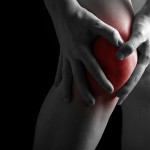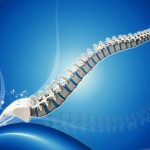
Heather Gray summarises a review of best practice in work absence management and return to work programmes for people with musculoskeletal and mental health conditions.
[read the full story...]
Heather Gray summarises a review of best practice in work absence management and return to work programmes for people with musculoskeletal and mental health conditions.
[read the full story...]
Lesley Dawson appraises and summarises a recent systematic review of the measurement properties of PROMs (patient reported outcome measures) used for patellofemoral pain syndrome.
[read the full story...]
Are there any benefits from walking exercise in people with chronic musculoskeletal pain? We report on a recent systematic review that looks into the benefits and harms.
[read the full story...]
A friend of mine is currently training to be a Yoga instructor. This got me thinking about Yoga and musculoskeletal conditions. The different Yoga poses focus on increasing the flexibility of the joints and improving postural stability through improvements in muscle strength. Yoga also aims to release the tension on muscles with the aim of [read the full story…]

Chronic pain is a major health concern, which increases in prevalence and impact with age. This is important as chronic pain can result in a significant decrease in function and quality of life along with an increase in use of health and social care. Self-management is a potentially inexpensive form of pain management and it [read the full story…]

If you see someone rubbing his back after lifting something or holding it while moving from a sitting to standing position what are your thoughts? Would you consider that this type of behaviour would influence your rating of a patient’s level of pain and ability to return to work? These types of actions can be [read the full story…]

Low back pain (LBP) is one of the main reasons for people consulting their general practitioner and seeking treatment from a physiotherapist. The provision of accurate advice on the recovery for LBP is an important feature of any consultation, yet there is disagreement as to its prognosis. Therefore, it was with great interest that I [read the full story…]

We are continuing our theme this week of exercise and physical activity as the 5×50 worldwide exercise flash-mob challenge starts on Friday 23rd November (see earlier post) Do you know anyone who is waiting for a knee or hip joint replacement? They typically experience pain, reduced muscle strength and function. So how can they prepare [read the full story…]

When the keep-fit Elf was on holiday recently her replacement introduced us to a new exercise. We all enthusiastically participated in the ‘power lunges’ (more like wobbling really) but over the next few days the front of my knee hurt climbing stairs, kneeling or bending down. What was wrong? Would exercising make it worse? How [read the full story…]

Have you ever had a painful shoulder? Did it get better on its own? I have a friend, not another Elf, who had bilateral frozen shoulders. It was a most functionally limiting and painful problem. Fortunately intra-articular steroid injections saved the day and made a huge difference to both pain and function. If you have [read the full story…]